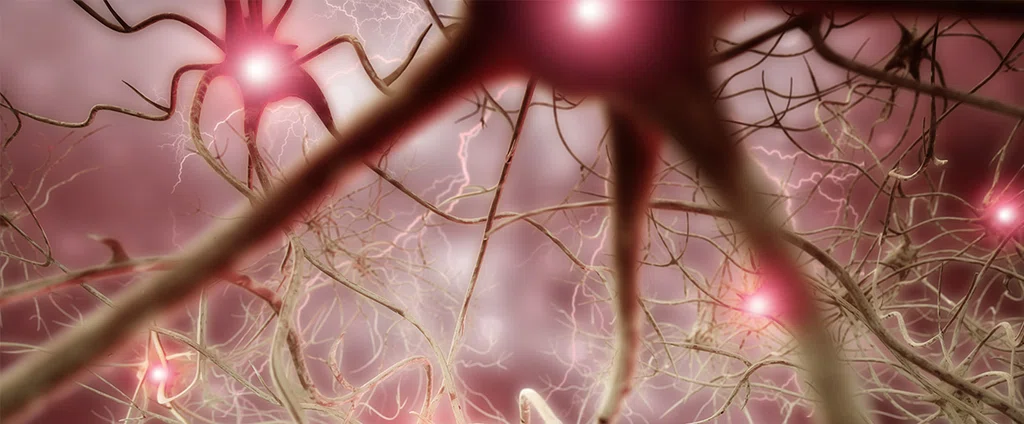


Introduction
Ann Kimball and John W. Johnson Center for Cellular Therapeutics at Houston Methodist
Houston Methodist Dr. Mary and Ron Neal Cancer Center
The Food & Health Alliance within the Houston Methodist Lynda K. and David M. Underwood Center for Digestive Disorders, Immunology Center and the Fondren Inflammation Collaborative
Houston Methodist Cockrell Center for Advanced Therapeutics
Paula and Joseph C. “Rusty” Walter III
Translational Research Initiative
Jerold B. Katz Academy of Translational Research
Infectious Diseases Research Fund
George and Angelina Kostas Research Center for Cardiovascular Medicine
New Endowed Chairs Positions
EnMed
Center for Bioenergetics
result
Clinical Research
Outcomes, Quality and Healthcare Performances
Restorative Medicine
Precision Medicine
Science in Service
of
Medicineresult
President's letter
2022 Metrics
Cycle of Translation
Visionary Gifts of Hope


Introduction

Ann Kimball and John W. Johnson Center for Cellular Therapeutics at Houston Methodist

Houston Methodist Dr. Mary and Ron Neal Cancer Center

The Food & Health Alliance within the Houston Methodist Lynda K. and David M. Underwood Center for Digestive Disorders, Immunology Center and the Fondren Inflammation Collaborative

Houston Methodist Cockrell Center for Advanced Therapeutics

Paula and Joseph C. “Rusty” Walter III Translational Research Initiative

Jerold B. Katz Academy of Translational Research

Infectious Diseases Research Fund

George and Angelina Kostas Research Center for Cardiovascular Medicine

New Endowed Chairs Positions

EnMed

Center for Bioenergetics

From Discovery to Clinic


What is "Discovery to Clinic"?

Clinical Research


Houston Methodist Conducts First-Ever Study into a Challenging Situation

Can Regulating Cellular Aging Mitigate Both Cancer and Heart Disease?

Innovative Treatment for Chronic Rhinitis is Safe and Effective


Masters of Disguise: Glioblastomas Trick the Immune System by Masquerading as Reproductive Tissue
Improved Options for Patients with Severe Retinal Vascular Disease

A New FDA-Approved Treatment for Sufferers of Chronic Constipation

Houston Methodist joins the Gulf Coast Consortia

Outcomes, Quality and Healthcare Performance


New Findings on RNA Helicases May Yield New Intestinal Disease Therapy

Houston Methodist and Pennsylvania State University Collaborate on a Smartphone App That Could Revolutionize Stroke Diagnosis

New Frontiers to Improve Cardiovascular Medicine and Disease Management

Ongoing Lessons in a Pandemic

Transplants can Boost Survival Rate of Patients with Unresectable Liver Cancers

Telehealth Video Visits During the COVID-19 Pandemic – a Glimpse into the Future?

SARS-CoV-2 Induced Chronic Oxidative Stress and Endothelial Cell Inflammation May Increase Likelihood of Cardiovascular Diseases and Respiratory Failure

Restorative Medicine


Lessening Pain After Knee Replacement Surgery

Do Motor Neurons First Die in the Brain? Study Provides Clues about ALS Origins

Bringing Back Hand Function in People with Complete Spinal Cord Injury

Novel Vascular Engineering Platforms Are a Boon for Bioengineering

Ultra-high-Resolution Scanner Reveals if Knee Injury Advances to Osteoarthritis

Houston Methodist Model Demonstrates Reversal from Heart Failure State, Creating the Potential for Innovative Treatment Avenues

Precision Medicine


Rapidly Scalable, All-Inducible Neural Organoids Could Facilitate Drug Screening for Neurological Diseases

Importance of the Coronary Artery Calcium Score in Risk Assessment and Prevention of Atherosclerotic Cardiovascular Disease

COVID-19 Infection in Crucial Brain Regions May Lead To Accelerated Brain Aging

Interleukin 9 Secreting Polarized T Cells Show Potential in Solid and Liquid Tumor Treatment

The NanoLymph: Implantable. Adaptable. Anti-cancer


Innovative Education
Launching a Legacy of Leading Medicine

Houston Methodist is committed to building transformative education experiences at the intersections and gaps between disciplines through health science and medical education programs.
Houston Methodist is not degree granting, rather, we forge academic partnerships that bring in measurable results today and offer greater opportunities for tomorrow.
Our residencies, fellowships, research doctoral program and continuing education programs in medicine, research, nursing and pharmacy attract more than 56,260 learners from around the world each year.
01
EnMed Innovation Symposium and Showcase

The School of Engineering Medicine (ENMED) organized the Annual ENMED Symposium and Student Showcase on Wednesday, Aug. 10, at the ENMED Tower Auditorium, 1020 Holcombe in Houston. The event honored and acknowledged the innovative research initiatives of the ENMED students, including the Capstone Innovator Awarded Recipients. The one-day conference featured projects and concepts developed by the ENMED students, awards and presentations. Symposium speakers included Ericka Greene, MD, Houston Methodist, Roderic Pettigrew, MD, PhD, Texas A&M University, former NASA Astronaut Scott Parazynski, MD, and benefactors Sue Smith and Craig Brown.

02
NIH Grant Promises New Frontiers in Neural and Organ Regeneration

Houston Methodist has received a National Institutes of Health (NIH) training grant for a first-of-its-kind program to bridge the gap between neuroscience and organ systems and speed development of next-generation neuroregeneration therapies.
The T32 grant, awarded in May to Houston Methodist Neurological Institute's Department of Neurosurgery, should usher in a new wave of research exploring the little-studied connection between the brain and other bodily systems, including the vascular, gastrointestinal, musculoskeletal and immune.
Horner called the grant the culmination of the program's establishment, which dates to a 2016 Houston Methodist course. The course, expanded upon since then, typically fills up within 24 hours of being announced, Horner said.
"This training program will foster a new generation of scientists who will in turn help build a new frontier of biology," said Philip Horner, PhD, scientific director of the Center for Neuroregeneration at Houston Methodist and project leader. "It will bring non-neuroscience disciplines into neuroscience."

This training program will foster a new generation of scientists who will in turn help build a new frontier of biology

Philip Horner, PhD
Known as Neural Control of Degeneration and Regeneration (NeuralCODR), the program unites 30 regeneration biologists and neurophysiologists and 12 clinical researchers, providing mentorship to fellows pursuing expertise in this new frontier. In addition to Houston Methodist, team members also come from Rice University, The University of Texas MD Anderson Cancer Center, Baylor College of Medicine and the University of Houston.
The program is born from the idea that medicine's organization of departments by organ systems creates silos that impede collaboration and training. Hence, "understanding of how the central nervous system communicates with end organs through the body is in its infancy," according to the project abstract on NIH Reporter.
The classic example of a neurological condition caused by dysfunction in another organ is hepatic encephalopathy, where advanced liver disease can lead to cognitive impairment, such as confusion and difficulty processing thoughts. It occurs when the liver struggles to filter toxins from the blood, which subsequently build up and travel to the brain.
But Horner noted that many connections between the brain and other organs are still theoretical. Researchers have yet to map the anatomical connections or even find the chemical signals between the brain and different organ systems.
"The thing to remember is that brain and body communication is a two-street that regulates vitality and decline," said Horner. "But those communication patterns between mind and body that make us sick or well are still mysterious. We need to unravel those mysteries."
The bottom line, said Horner, is that curing many brain disorders will require a better understanding of organs downstream of the brain.
The NIH T32 grant awarded to Houston Methodist Neurological Institute's Department of Neurosurgery, $1.5 million over five years, will pay the salaries of four fellows per year, still to be chosen. The NeuralCODR training program was initially seeded with two fellows per year through the generosity of the Paula and Joseph C. “Rusty” Walter III Neurorestoration Initiative.
Through future renewable grants, Horner hopes to expand the program to 16 positions in future years.
T32 grants are prestigious, highly competitive grants given to institutions to support groups of pre- and/or post-doctoral fellows, including trainees in basic, clinical and behavioral research. The NIH annually awards about 20 such grants in the neurosciences.
The grant is the first T32 ever awarded to Houston Methodist.
"This is a landmark for the Houston Methodist Neurological Institute's Department of Neurosurgery to be recognized by the NIH as a top site for training," said Gavin Britz, Director of the Neurological Institute. "It will help us achieve our goal of attracting and training the best researchers."
Current NeuralCODR Research Projects:
Current NeuralCODR Research Projects:
- The use of direct spinal stimulation devices, in development, to treat bladder problems resulting from aging or injury. The idea is to reconnect the brain with the circuitry necessary to control the bladder.
- Fecal transplants to improve gut-brain signaling and decrease inflammation in patients who have suffered head injuries. The transplant research, currently in animals, builds on a human study that found concussions in college athletes could be diagnosed through changes detected in their gut microbiomes.
- The development of a method to use nanometer-scale vehicles to deliver medicine to neural cells that promote the regeneration needed to reverse or repair ongoing damage in conditions ranging from neurodegenerative disease and stroke to brain trauma. The research uses non-neural cells to promote new connections and encapsulated asteroids that can be implanted to support synapse growth in models of disease.
03
Graduate Medical Education
Houston Methodist provides an academic health care environment that promotes comprehensive learning opportunities for more than 56,260 physicians and medical students each year through medical student rotations, residency and fellowship programs, procedural skills training through the Houston Methodist Institute for Technology, Innovation & Education (MITIESM) and continuing education courses.
Our 1,163 trainees and residents work with inpatient teams and one-on-one with subspecialists during rotations in general surgery, family medicine, internal medicine, orthopedic surgery and obstetrics and gynecology. Houston Methodist has 372 residents and fellows placed within 49 programs accredited by the Accreditation Council for Graduate Medical Education (ACGME) and 15 Graduate Medical Education Committee-sponsored fellowships.
On the March 2022 Match Day, 66 medical students from around the world officially became incoming residents at Houston Methodist for the 2022-2023 academic year. Of the new group of residents, 32 hailed from U.S News & World Report-ranked medical schools.
372
Residents/Fellows
68
Graduate Medical Education Programs
49
ACGME Accredited
19
Non-ACGME Accredited
Our residents and fellows join Houston Methodist from throughout the U.S.
and go on to prestigious fellowship opportunities at institutions such as
Mayo Clinic, Cleveland Clinic, and Massachusetts General Hospital.
Houston Methodist Welcomes Four New Graduate Medical Education Programs
In 2022, some of Houston Methodist’s incoming trainees became the inaugural members of three new programs. This trend will continue in summer of 2023, as a new fellowship in transplant hepatology has been accredited by the ACGME and is preparing for incoming trainees. These curricula join the growing cadre of established residencies in 12 disciplines and more than 30 fellowship programs.
Anesthesiology Residency Training Program
The new residency program provides a unique blend of experiences designed to train the next generation of anesthesiologists and provide scholarly and professional opportunities that will advance the field of medicine. The program faculty educate trainees in the comprehensive management of patients who are critically ill, undergoing surgery or are experiencing pain.
New ACGME-accredited Otolaryngology Head and Neck Surgery Residency Program
The mission of the five-year training program is to be the recognized leader in clinical care, education and scientific discovery, and to provide comprehensive training to residents in all aspects of this specialty. An emphasis is placed on academic learning and the basic sciences, surgical and clinical competency and research.
New Rheumatology Fellowship Program
The program’s goal is to produce accomplished clinical rheumatologists prepared for careers in clinical and academic rheumatology. The comprehensive new two-year curriculum is designed to focus on improving the care experience as well as individual and population health and reducing unnecessary care.
New ACGME-accredited New Transplant Hepatology Fellowship Program
The fellowship’s main objective is to train highly competent hepatologists. Harnessing our robust transplant program as well as a diverse curriculum, all trainees will achieve a level of excellence in patient care, medical knowledge, communication skills and practice-based learning related to the treatment of end stage liver disease. The fellowship will foster skills in optimal utilization of liver transplantation in the management of advanced liver disease and in the care of patients with liver disease through transplantation and beyond.















